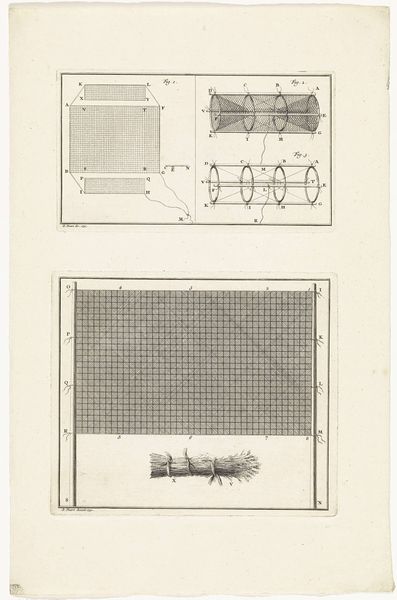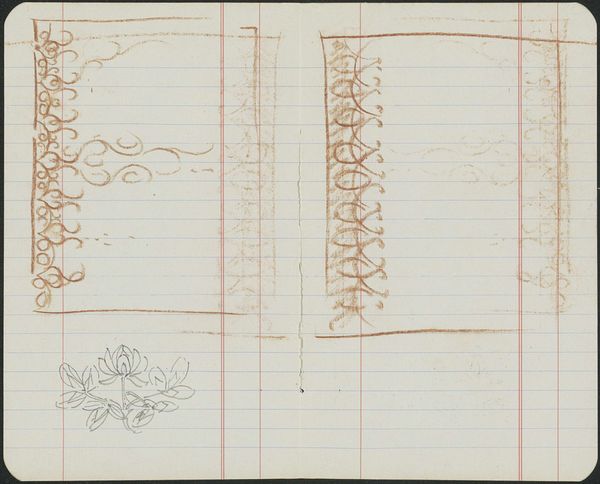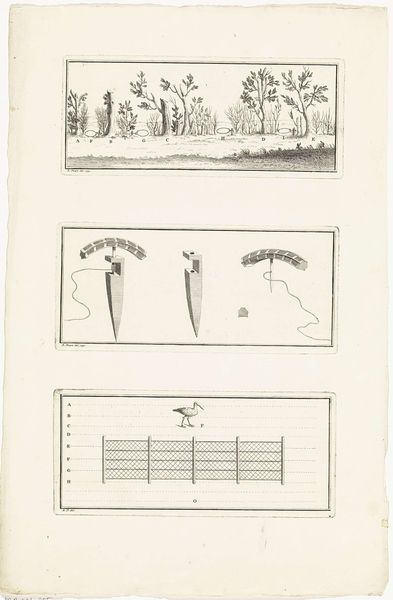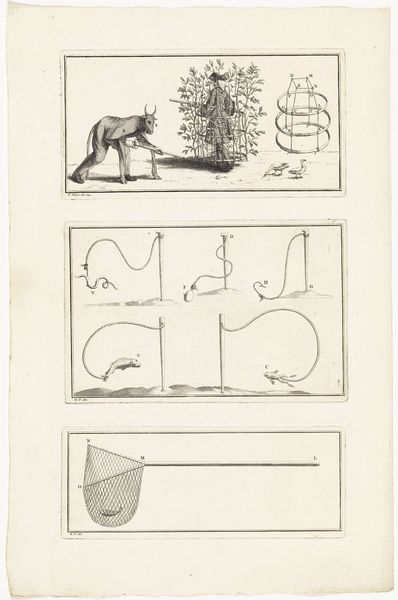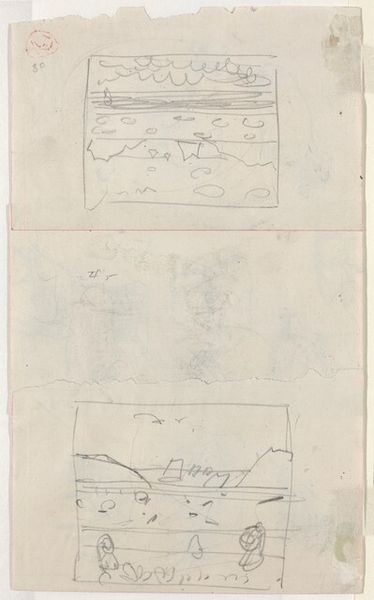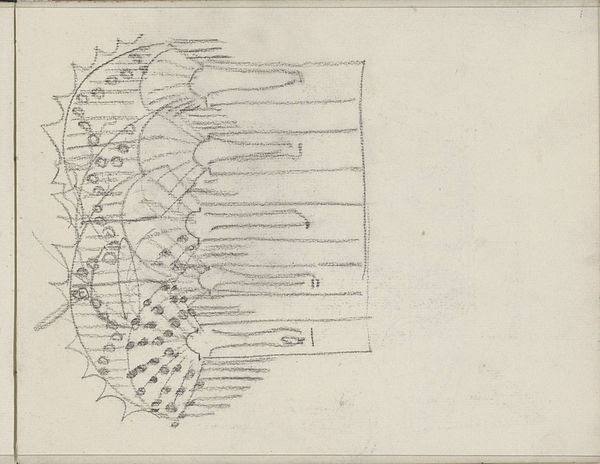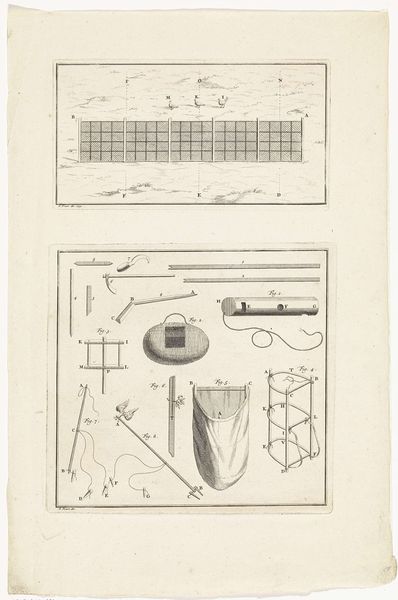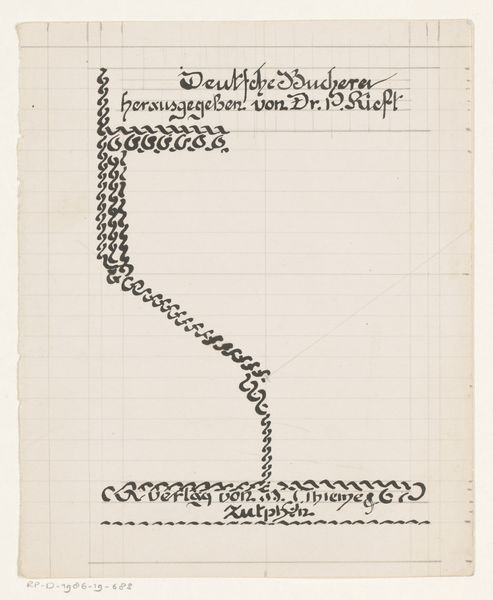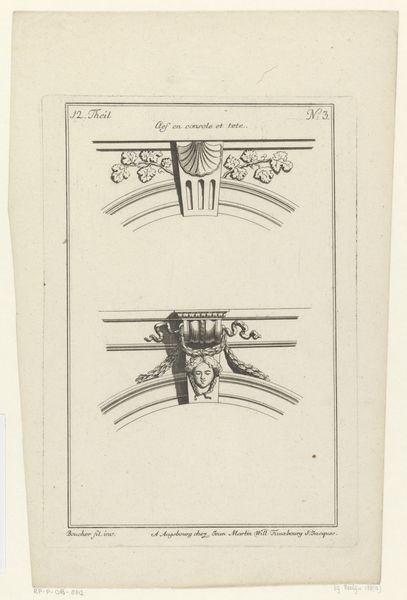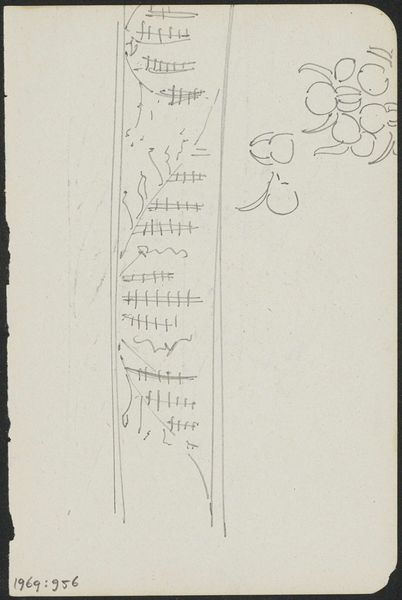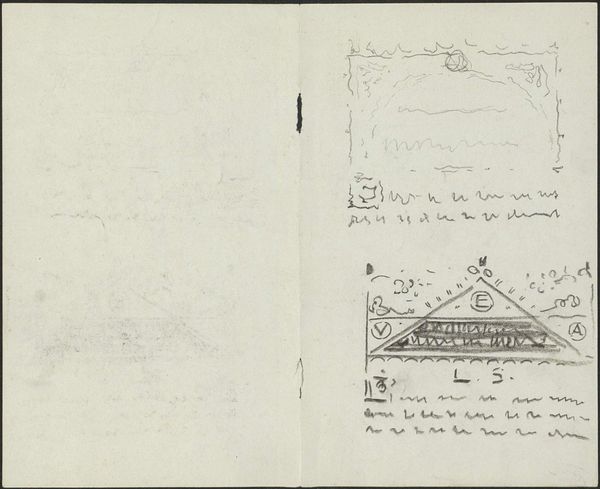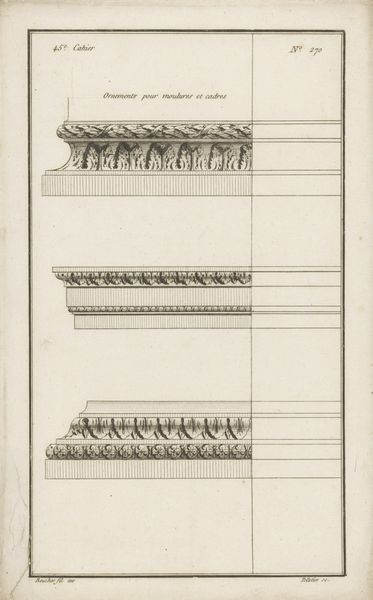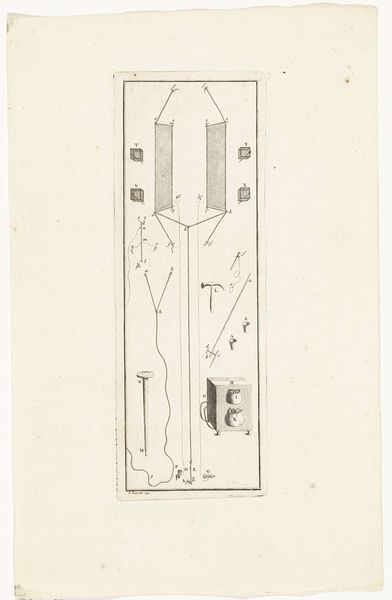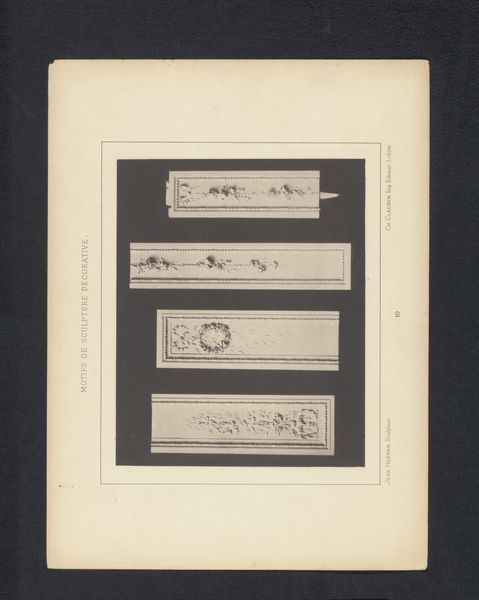
drawing, print, etching, engraving
#
drawing
# print
#
etching
#
old engraving style
#
etching
#
geometric
#
line
#
history-painting
#
engraving
Dimensions: height 378 mm, width 252 mm
Copyright: Rijks Museum: Open Domain
Bernard Picart made this print, ‘Werktuigen voor het vangen van vogels en vissen’, with etching. Picart renders the tools in fine lines, demonstrating the tools as the product of human ingenuity. In the early 18th century, etching was a favored method for reproducing images. It involves covering a metal plate with a waxy, acid-resistant ground. The artist then scratches an image into the ground, exposing the metal. When the plate is dipped in acid, the exposed lines are etched into the metal. The plate is then inked, and the ink is wiped away from the surface, remaining only in the etched lines. Finally, the plate is pressed onto paper, transferring the image. The even, precise lines of etching are perfect for technical illustration, conveying an almost scientific objectivity. Yet the very act of trapping reflects a human desire to exert control over the natural world, a desire that has only intensified with the rise of industrialization and mass production. As you consider this image, think of the labor required to create and use these tools, and the relationship between humans and the environment.
Comments
No comments
Be the first to comment and join the conversation on the ultimate creative platform.
